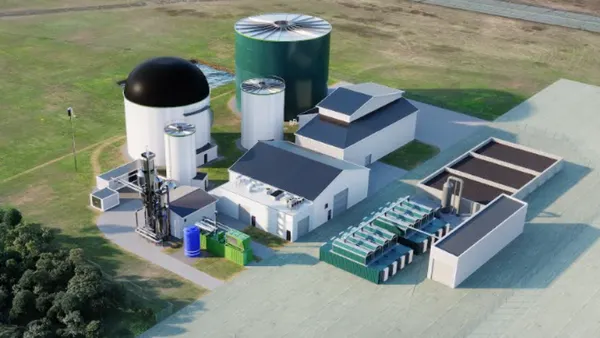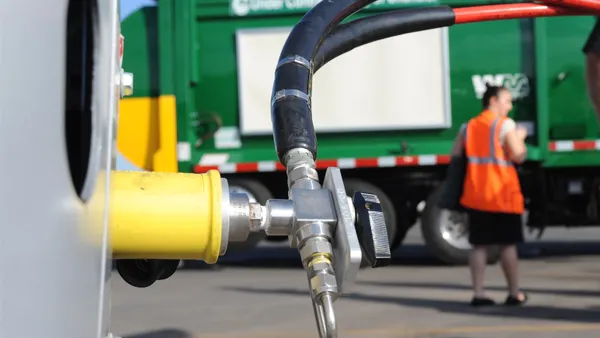Dive Brief:
- Enerkem, a Montreal-based biofuel producer, recently announced that it had received permission from the U.S. Environmental Protection Agency to sell cellulosic ethanol produced from municipal solid waste in the U.S. under the Renewable Fuel Standard.
- According to Enerkem, biofuel from its Edmonton facility is registered for D3 Renewable Identification Numbers (RINs). Fuel sources are categorized differently, giving their RINs different values.
- Enerkem says it is the first producer to receive registration under RFS regulations to sell waste-to-cellulosic ethanol. Pierre Boisseau, senior director of marketing and communications for Enerkem, said in an email that the facility produces 13 million gallons of cellulosic ethanol annually and there is no set volume or limit in how much Enerkem can sell into the U.S.
Dive Insight:
The cellulosic ethanol from Enerkem's Alberta plant comes from mixed waste — everything from soiled food containers to textiles — unlike most digesters in the U.S. which have more homogeneous feedstocks. How well this site performs, and how well its fuel sells, could be a signal to the rest of the industry. If Enerkem can be profitable selling cellulosic ethanol from mixed waste, others may be more inclined to invest in the technology. The project has been closely watched in the waste-to-energy sector as a potential harbinger of new expansion opportunities.
The move could also be seen as a bit of a reassurance that the EPA is taking the future of the RFS seriously. The first volume requirements for the RFS proposed by the EPA worried biogas producers and lead to calls for a reconsideration. EPA Administrator Scott Pruitt recently promised to reconsider the required volumes and not lower them any further. The finalized required volumes under the RFS are due out by Nov. 30.
That Pruitt's EPA is allowing a Canadian firm with such a high output to qualify for RINs could be seen as a sign that the agency is at least considering raising the required volumes, though it will be impossible to know for sure until the numbers are released. This is especially true considering that some elected officials are already asking Pruitt for waivers because of "the high cost of purchasing RINs." As Congress moves ahead with a budget and, potentially, to a tax reform bill, there could be further legislative action that would aid biofuel producers.









